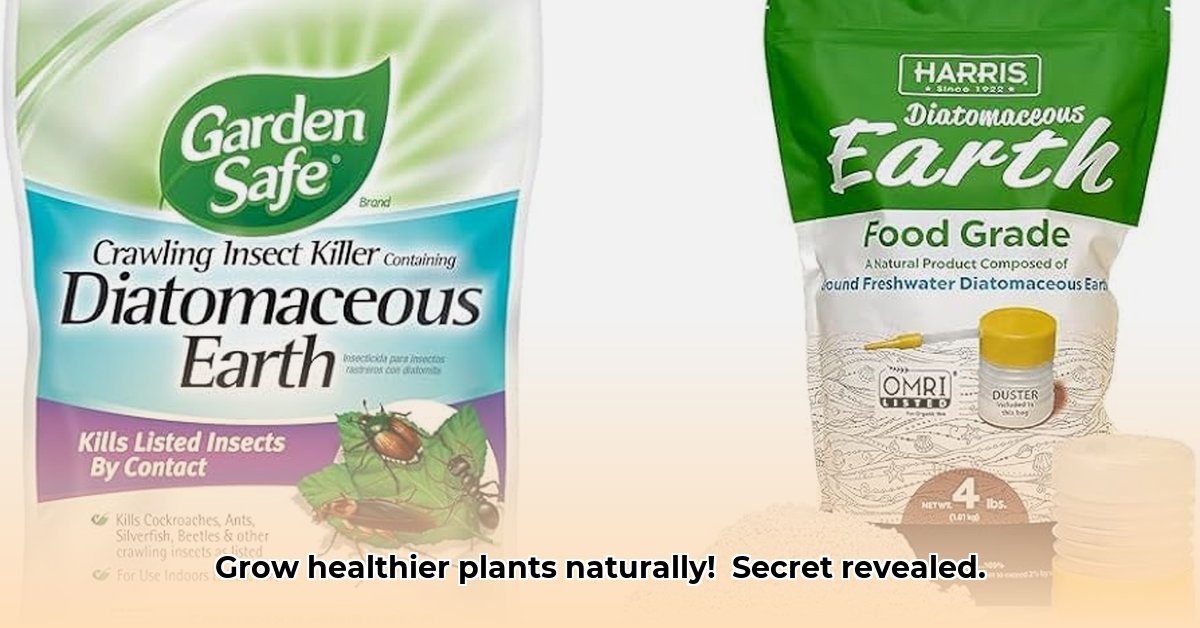
Diatomaceous Earth Food Grade Tractor Supply: Unlocking Nature's Secret for Healthier Plants
Dealing with garden pests without harsh chemicals can be challenging. Food-grade diatomaceous earth (DE) from Tractor Supply offers a natural, effective solution. This article explores its benefits, application, and considerations for healthy plant growth. We'll examine how DE works, proper application techniques, and address common concerns. Is DE the right pest control solution for your garden? Let's find out. For larger-scale gardening, consider chicken tractor options.
Diatomaceous earth (DE) is composed of fossilized remains of microscopic aquatic organisms called diatoms. Think of it as incredibly fine, almost powdery, dust. The food-grade variety, available at Tractor Supply and similar retailers, undergoes processing to remove harmful impurities, making it safe for use around edible plants. This is crucial – always use only food-grade DE.
How Does Food-Grade DE Help My Plants?
DE's effectiveness stems from its unique microscopic structure. Its sharp edges act as tiny abrasives, perforating the exoskeletons of soft-bodied insects such as aphids, mealybugs, and spider mites. This causes dehydration and ultimately kills them. It's like a microscopic army of tiny swords against your garden pests! However, it's essential to understand that DE's effectiveness varies. It's generally more effective against insects with softer exoskeletons. How effective is DE against beetles with hard shells? Further research is needed to determine its precise efficacy against all pests.
Beyond pest control, some gardeners believe DE improves soil health. It's hypothesized that DE enhances drainage and aeration, leading to better root growth and healthier plants. However, more research is needed to confirm the long-term impact of DE on soil microbial communities. It's prudent to use it cautiously and monitor its effects.
Using Diatomaceous Earth: A Simple, Step-by-Step Guide
Using DE is straightforward, but careful application is crucial for optimal results. Follow these simple steps:
- Choose the Right DE: Ensure the DE is explicitly labeled "food-grade" to guarantee safety for edible plants. Tractor Supply is a reliable source.
- Dusting: Lightly dust affected plants, focusing on areas where pests congregate, such as the undersides of leaves. Apply on a calm day to prevent the powder from blowing away. Reapply as needed, particularly after rain. How much DE should you use? A light dusting is generally sufficient; avoid over-application.
- Soil Amendment (Use with Caution): Some gardeners incorporate small amounts of DE into potting mixes or garden soil to improve drainage. Start with small amounts and closely monitor your plants. Excessive DE might negatively impact soil health.
- Safety First: Always wear a dust mask when handling DE to prevent inhaling the fine powder, which can be irritating to the lungs.
Pros and Cons of Using Food-Grade DE
| Pros | Cons |
|---|---|
| Natural and relatively inexpensive | Effectiveness varies depending on pest type and application method. |
| Effective against some soft-bodied insects | Requires careful application to avoid inhalation; wear a mask. |
| May improve soil drainage and aeration | Limited scientific research on long-term effects on soil health. |
| Environmentally friendly | May not be a complete solution for pest control; may need to be used in conjunction with other methods. |
Ongoing Research and Future Possibilities
Research on DE's use in gardening is ongoing. While current evidence suggests various benefits, more studies are needed to understand its long-term impact on soil ecosystems and optimal application techniques for different pests. Future research may uncover even more applications for this natural substance. What are the long-term effects of DE on beneficial soil microbes? This is an important area of ongoing investigation.
Harnessing the Power of Food-Grade Diatomaceous Earth from Tractor Supply: A Natural Approach to Pest Control
Key Takeaways:
- Food-grade DE from Tractor Supply offers a natural way to improve plant health.
- DE is an effective, safe, and affordable pest control agent.
- Proper application maximizes DE's benefits.
- Understanding the pros and cons ensures responsible use.
What is Diatomaceous Earth (DE)?
DE is a naturally occurring sedimentary rock made of fossilized diatoms. Its microscopic structure, with sharp edges, is key to its insecticidal properties. Tractor Supply's food-grade DE is safe for use around edible plants. This natural insecticide is effective against many common garden pests, unlike harsh chemicals.
DE: A Natural Pest Control Solution
DE acts as a natural, environmentally friendly insecticide, effective against aphids, slugs, and spider mites. Unlike chemical pesticides, it doesn't harm beneficial insects or pollute the environment. It's a physical barrier disrupting the pest life cycle.
Applying Food-Grade DE: A Step-by-Step Guide
- Choose the right DE: Select "food-grade" DE from a reliable source like Tractor Supply.
- Prepare your plants: Gently dust leaves and stems, focusing on pest-prone areas.
- Apply consistently: Reapply after rain or watering to maintain effectiveness.
- Safety precautions: Always wear a mask to protect your lungs.
Pros and Cons of Using Food-Grade DE
| Pros | Cons |
|---|---|
| Effective against many common garden pests | Requires consistent application, especially after rain |
| Safe for beneficial insects and the environment | Can be messy to apply |
| Cost-effective | May not be effective against all pests |
| Readily available at Tractor Supply | Requires careful handling to avoid inhalation |
Maximizing the Effectiveness of DE
Apply DE in the early morning or evening when pests are most active. A light dusting is usually sufficient. Avoid over-application, which could potentially harm plants. Remember, DE may need to be used with other organic pest control methods for severe infestations.